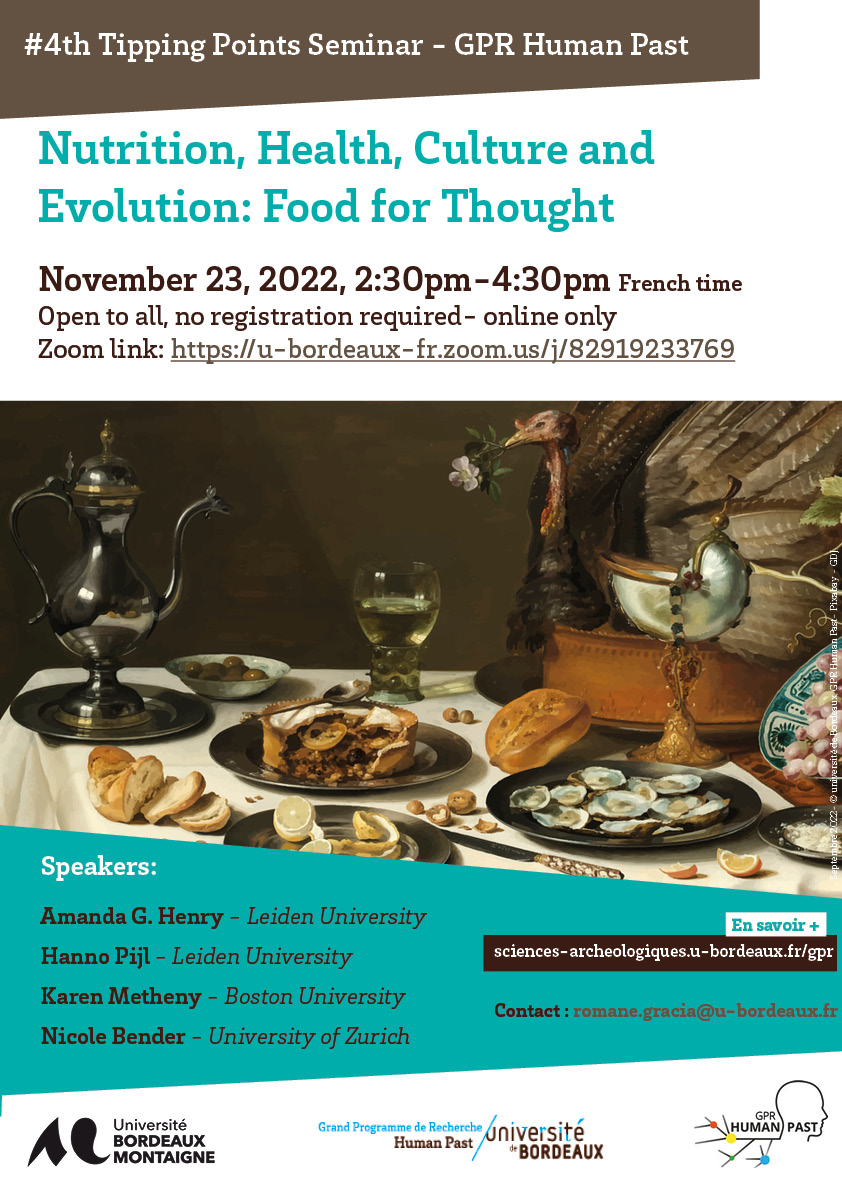Nutrition, Health, Culture and Evolution: Food for Thought
For the fourth seminar on tipping points, GPR Human Past invited Amanda G.Henry, Karen Metheny, Nicole Bender and Hanno Pijl for Nutrition, Health, Culture and Evolution: Food for Thought. The seminar was held on November 23, 2022
Speakers:
- Amanda G. Henry, Leiden University, invetsigates the use of plant microremains from archaeological contexts as markers of diet, differences in the plant food consumption between Neanderthals and Early Modern Humans, diet of our very early australopith ancestors.
- Hanno Pijl, Leiden University, internist-endocrinologist, Professor of Diabetology, interested in our nutritional history and chronic diseases
- Karen Metheny, Boston University : historical archaeologist and anthropologist specializing in food studies
Made to order? Food and culture are messy, and other thoughts on evolutionary tipping points
When we think about the role of food as a tipping point in human development, we need to look past evolutionary models. Culture is messy. We don’t eat everything that we, as humans, might consume. Our food choices are not always rational. Culture, rather than biology, may be everything. In this presentation, I want to highlight in particular the impacts of cultural encounters on foods and food practices that may lead to profound cultural, social, and historical change.
- Nicole Bender, University of Zurich : evolution of human nutrition and body composition, obesity and related diseases, Evolutionary Public Health, Human adaptation to novel environments and mismatch diseases, Clinical Evolutionary Medicine.


